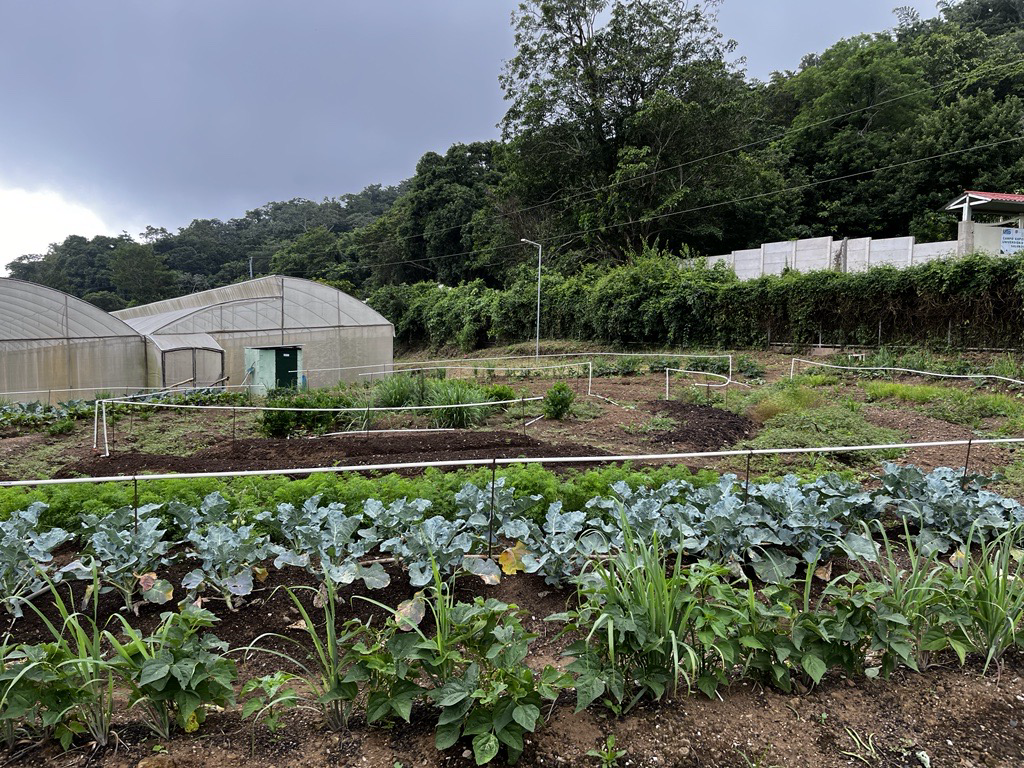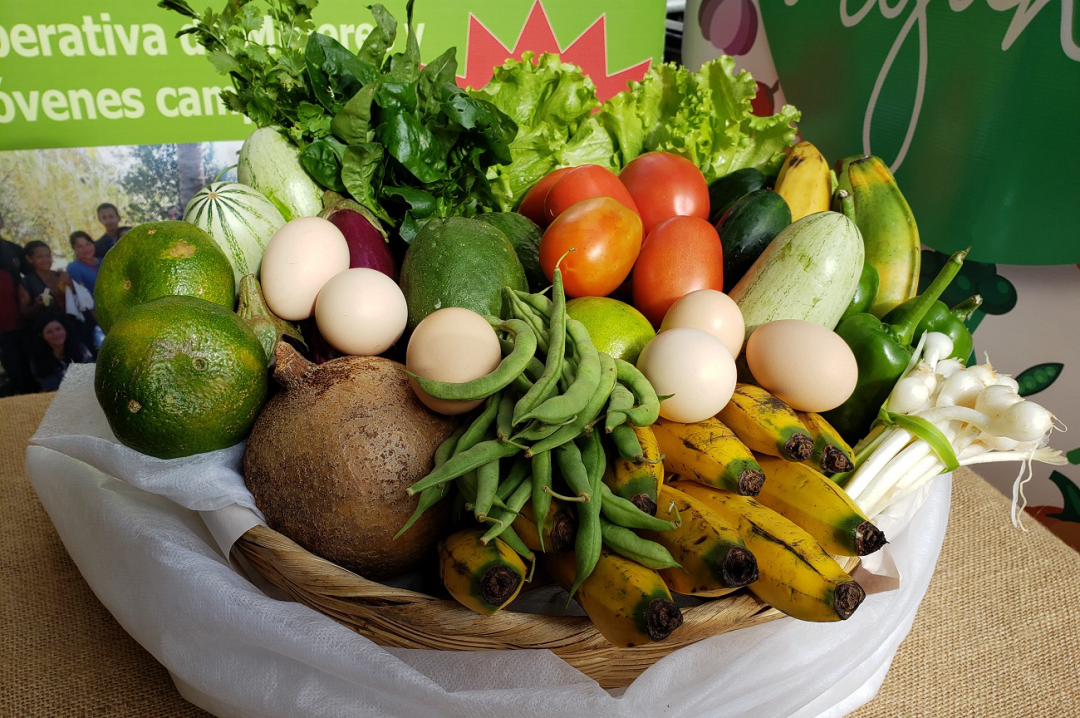Disclaimer:
Please be aware that the content herein has not been peer reviewed. It consists of personal reflections, insights, and learnings of the contributor(s). It may not be exhaustive, nor does it aim to be authoritative knowledge.
Title
Please provide a name for your action learning plan.
Designing and testing climate products to improve local decision making in response to climate change
Challenge statement
Challenge type: If you are working on multiple challenges, please indicate if this is your "big bet" or "exploratory" challenge.
Please note: we ask you to only submit a maximum of 3 challenges - 1x Big Bet, 2x Exploratory. Each challenge must be submitted individually.
BIG BET
Challenge statement: What is your challenge? (Please answer in specific terms: "Our challenge is that...”.)
The challenge identified is that although the communities in El Salvador have experienced the impact of climate change, this has not necessarily translated into real knowledge about this phenomenon and its future projections. This lack of knowledge extends to local leaders and land users, such as farmers who are unaware of how to address these impacts in a way that builds long-term resilience, creating barriers to implementing adaptation strategies.
Background: What is the history of your challenge? What is causing or driving it? Who is involved? How does the current situation look like? What undesired effects does it produce?
Embedded in the "Strengthening the climate resilience of rural communities in the ecosystems of Ahuachapán-Sur" project and being aware of these climate impacts on local actors and its negative implications for livelihoods and the landscape ecosystem, the Ministry of Environment and Natural Resources (MARN) requested UNDP ELSV and its Lab to design, test and implement climate information products focused on the users that are fed with the extensive daily production of data collected by the Directorate of the Observatory on Climate Threats at the MARN. The Lab provided assistance in designing a work plan and roadmap to implement these climate products. Nevertheless, due to administrative delays from the Ministry, we have decided along with our DRR to run the learning cycle with a local Co-op called The Peasant Basket (La Canasta Campesina), in which around 130 farmers cooperate to produce fruit and vegetables. This initiative had been identified from a previous solutions mapping exercise conducted in 2022: https://www.appropedia.org/La_Canasta_Campesina.
Quantitative evidence: What (official) data sources do you have on this challenge that better exemplifies the importance and urgency of this frontier challenge? You can add text, a link, or a picture.
According to the Intergovernmental Panel on Climate Change (IPCC), the average and minimum temperature will vary considerably between the periods 2021-2050 and 2071-2100 in all climate scenarios for El Salvador: this represents changes of 1ºC and 3ºC towards the end of the century. Temperature increases of such magnitude will have a direct effect on the temperature of the Pacific Ocean coast. These changes will affect 90% of the national territory.
Qualitative evidence: What weak signals have you recently spotted that characterizes its urgency? Please provide qualitative information that better exemplifies the importance and urgency of this frontier challenge. You can add text, a link, or a picture.
El Salvador has been identified by IPCC as one of the countries with the highest sensitivity to climate change. According to the Fifth Assessment Report of the IPCC, the country is characterized by high exposure to geoclimatic threats, due to its location and topography, which aggravates the risk induced by climate change and the vulnerability of human settlements and ecosystems. The Global Climate Risk Index for the period between 1997 and 2016, places El Salvador in 16th place in the world.
Value proposition: What added value or unique value proposition is your Accelerator Lab bringing to solving this challenge? Why is it your Lab that needs to work on this challenge and not other actors within UNDP, other stakeholders in the country respectively? Why is it worth investing resources to this challenge?
The development and testing of climate information products requires innovation, research and development methods. Since the UNDP Accelerator Lab in El Salvador uses R+D methodologies to develop and test public products and services, this provides a good fit to lead the design, development and testing of these climate information products using a human-centered approach. Gender differences will be taken into account, given that the majority of the farmers are women.
Short “tweet” summary: We would like to tweet what you are working on, can you summarize your challenge in a maximum of 280 characters?
The UNDP Accelerator Lab in El Salvador in alliance with La Canasta Campesina @lacanastacampes will use R+D capacities to design, develop and test climate information products for local leaders, farmers to implement adaptation strategies to climate change.
Partners
Who are your top 5 partners for this challenge? Please submit from MOST to LEAST important and state Name, Sector and a brief description of the (intended) collaboration.
Please state the name of the Parter:
Cooperativa La Canasta Campesina
Local R+D
What sector does our partner belong to?
Civil Society
Please provide a brief description of the collaboration.
The Lab will work closely with the Peasant Basket Co-op to lead the design, test, implementation and local capacity building of climate information products until the December of 2023.
Is this a new and unusual partner for UNDP?
No
Learning questions
Learning question: What is your learning question for this challenge? What do you need to know or understand to work on your challenge statement?
What does it take for local leaders and farmers to adopt climate information to sustain and adapt and enhance their livelihoods to climate change? What constitutes an effective climate information products? What are the most adequate means for local actors to consume climate information?
To what stage(s) in the learning cycle does your learning question relate?
Sense, Explore, Test
Usage of methods: Relating to your choice above, how will you use your methods & tools for this learning question? What value do these add in answering your learning question?
The simplest definition of a climate product is climate data + climate knowledge. To design these the climate products it is extremely important to empathize with farmers and local leaders to understand their climate information requirements to continue and enhance their livelihoods. This will be pursued by conducting ethnographic immersions and baseline surveys. These needs will be matched with the information that it is collected by the Observatory and these insights will be used to develop hypotheses to be tested through different forms of experiments, such as prototyping.
Existing data gaps: Relating to your choice above, what existing gaps in data or information do these new sources of data addressing? What value do these add in answering your learning question?
The main gap identified so far is not a lack of data per se, but a lack of adequate mechanisms and products to convey practical applications of climate data to communities, local leaders, farmers and ranchers.
Closing
Early leads to grow: Think about the possible grow phase for this challenge - who might benefit from your work on this challenge or who might be the champions in your country that you should inform or collaborate with early on to help you grow this challenge?
Humanitarian and Development Double-Nexus Joint Programmes currently in design and fund seeking stages, to address Food Insecurity and Poverty Reduction in the East part of the Country.
Nationally Determined Contributions (NDC).
Global Environment Facility Projects (GEF).
National Council for Sustainable Development (CNDS).
END OF ACTION LEARNING PLAN: Thank you! The form saves automatically and your submission has been recorded. You may now exit this window.


 5Gender equality
5Gender equality 13
13

Comments
Log in to add a comment or reply.